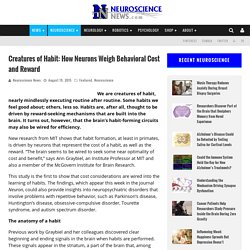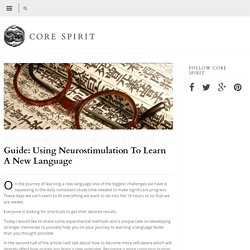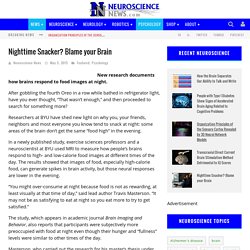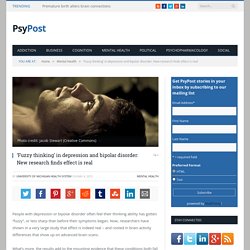

Is Porn Use Really Harmful to Relationships? What you read matters more than you might think — Quartz. The Brain on Flipboard. Creatures of Habit: How Neurons Weigh Behavioral Cost and Reward. We are creatures of habit, nearly mindlessly executing routine after routine.

Some habits we feel good about; others, less so. Habits are, after all, thought to be driven by reward-seeking mechanisms that are built into the brain. It turns out, however, that the brain’s habit-forming circuits may also be wired for efficiency. New research from MIT shows that habit formation, at least in primates, is driven by neurons that represent the cost of a habit, as well as the reward. “The brain seems to be wired to seek some near optimality of cost and benefit,” says Ann Graybiel, an Institute Professor at MIT and also a member of the McGovern Institute for Brain Research. This study is the first to show that cost considerations are wired into the learning of habits. The anatomy of a habit Previous work by Graybiel and her colleagues discovered clear beginning and ending signals in the brain when habits are performed.
In addition, these habitual eye-scanning patterns became more efficient. Traders' hormones may destabilize financial markets. The hormones testosterone and cortisol may destabilise financial markets by making traders take more risks, according to a study.

Researchers simulated the trading floor in the lab by having volunteers buy and sell assets among themselves. They measured the volunteers’ natural hormone levels in one experiment and artificially raised them in another. When given doses of either hormone, the volunteers invested more in risky assets. The researchers think the stressful and competitive environment of financial markets may promote high levels of cortisol and testosterone in traders. Cortisol is elevated in response to physical or psychological stress, increasing blood sugar and preparing the body for a fight-or-flight response. The authors of the new study, published in Scientific Reports, suggest the findings should be considered by policymakers looking to develop more stable financial institutions.
Cheating on your partner may come from your genes—especially for women. Warning: This article may be deadly for your trust issues.

Men are always presumed to want to sleep with as many people as possible because of an evolutionary desire to ensure the future of their family tree. From binge-drinking to vibrators: the dark sides of female equality. I believe it was Mark Twain who once said: “Everyone is a moon, and has a dark side which (s)he never shows to anybody.”

Well, listen up, moon-people, because it turns out something else also has a dark side: equality. As the recent ministerial appointment of backtracking, anti-same sex marriage spanner Caroline Dinenage as equalities minister suggests, a harmonious society centred around the equal treatment of people isn’t all it was cracked up to be. But though the Thatcher principle (“women can be helmet-headed heartless husks which, like the sun eating dragons of Chinese mythology, are intent on destroying all that’s good and true in the world, too”) may have a lot to answer for, it’s not the only downside to equality.
Indeed, according to a study by the OECD, “the dark side of equality” is that women now have drinking habits that resemble men’s. And that’s not all. Mediterranean Diet Boosts Brain Power, Clinical Study Finds. Guide: Using Neurostimulation to Learn a New Language. On the journey of learning a new language one of the biggest challenges we have is squeezing in the daily consistent study time needed to make significant progress.

These days we can’t seem to fit everything we want to do into the 16 hours or so that we are awake. Everyone is looking for shortcuts to get their desired results. Today I would like to share some experimental methods and a unique take on developing stronger memories to possibly help you on your journey to learning a language faster than you thought possible. In the second half of the article I will talk about how to become more self-aware which will directly affect how quickly you learn a new language. How to override the brain's empathy bias. The more time we spend with people of other races, the greater our empathy for them, new research shows.

“Research over the past decade has shown the brain has a very strong racial bias in response to seeing others in pain or suffering,” says Associate Professor Ross Cunnington of the University of Queensland School of Psychology and Queensland Brain Institute. “As a result, we have much stronger biologically-driven empathy towards people of our own race. “However, our study has shown that the level of empathy in the brain increases the more a person spends time with other races.” Cunnington says empathy depended partly on cerebral processes that led people to automatically mirror or share the emotions of others. Neural empathy The study involved Chinese students who had recently arrived in Brisbane, who recorded the level of contact they had with people of other nationalities.
Kids with ADHD must squirm to learn, study says. For decades, frustrated parents and teachers have barked at fidgety children with ADHD to “Sit still and concentrate!”

But new research shows that if you want ADHD kids to learn, you have to let them squirm. The foot-tapping, leg-swinging and chair-scooting movements of children with attention-deficit/hyperactivity disorder are actually vital to how they remember information and work out complex cognitive tasks, according to a study published in an early online release of the Journal of Abnormal Child Psychology. The findings show the longtime prevailing methods for helping children with ADHD may be misguided. “The typical interventions target reducing hyperactivity. Nighttime Snacker? Blame your Brain. New research documents how brains respond to food images at night.

After gobbling the fourth Oreo in a row while bathed in refrigerator light, have you ever thought, “That wasn’t enough,” and then proceeded to search for something more? Researchers at BYU have shed new light on why you, your friends, neighbors and most everyone you know tend to snack at night: some areas of the brain don’t get the same “food high” in the evening. Why living in the moment is impossible: Decision-making memories stored in mysterious brain area known to be involved with vision. The sought-after equanimity of "living in the moment" may be impossible, according to neuroscientists who've pinpointed a brain area responsible for using past decisions and outcomes to guide future behavior.

The study, based on research conducted at the University of Pittsburgh and published August 9 in the professional journal Neuron, is the first of its kind to analyze signals associated with metacognition -- a person's ability to monitor and control cognition (a term cleverly described by researchers as "thinking about thinking.
") "The brain has to keep track of decisions and the outcomes they produce," said Marc Sommer, who did his research for the study as a University of Pittsburgh neuroscience faculty member and is now on the faculty at Duke University. "You need that continuity of thought," Sommer continued. "We are constantly keeping decisions in mind as we move through life, thinking about other things. 'Fuzzy thinking' in depression and bipolar disorder: New research finds effect is real. People with depression or bipolar disorder often feel their thinking ability has gotten “fuzzy”, or less sharp than before their symptoms began.

Now, researchers have shown in a very large study that effect is indeed real – and rooted in brain activity differences that show up on advanced brain scans. What’s more, the results add to the mounting evidence that these conditions both fall on a spectrum of mood disorders, rather than being completely unrelated. That could transform the way doctors and patients think about, diagnose and treat them.
In a new paper in the journal BRAIN, researchers from the University of Michigan Medical School and Depression Center and their colleagues report the results of tests they gave to 612 women – more than two-thirds of whom had experienced either major depression or bipolar disorder. The researchers also present data from detailed brain scans of 52 of the women, who took tests while brain scans were conducted. More about the study.
How Does the Brain Learn Best? Smart Studying Strategies. Via MindShift In his new book, “How We Learn: The Surprising Truth about When, Where, and Why It Happens,” author Benedict Carey informs us that “most of our instincts about learning are misplaced, incomplete, or flat wrong” and “rooted more in superstition than in science.” That’s a disconcerting message, and hard to believe at first. But it’s also unexpectedly liberating, because Carey further explains that many things we think of as detractors from learning — like forgetting, distractions, interruptions or sleeping rather than hitting the books — aren’t necessarily bad after all. Can you supercharge your brain? In the summer of 2010, Ryan Clark twisted his ankle during a gym class.
It was painful, but inconvenient more than anything. He was put on crutches for a week and his ankle healed. Then, six weeks later, the pain returned – only this time, it was a lot worse. Ryan ended up in a wheelchair, unable to bear the agony of walking. Drugs and rehab helped and after six weeks or so he recovered. Spontaneous Events Drive Brain Functional Connectivity? - Neuroskeptic. A new study claims that Functional Connectivity in MRI Is Driven by Spontaneous BOLD Events The researchers, Thomas Allan and colleagues from the University of Nottingham (one of the birthplaces of MRI), say that their results challenge the assumption that correlations in neural activity between ‘networks’ of brain regions reflect slow, steady low frequency oscillations within those networks.
Instead, they report that the network connectivity is the result of occasional ‘spikes’ of coordinated activation that last only a short time. The authors fMRI scanned 12 volunteers using powerful 7 Tesla MRI. The scan sessions lasted 11 minutes and included resting periods along with simple motor and a memory tasks. Five Crazy Things Sex Does To Your Brain - Sexual Health. Researchers Discover a Link Between Sharp Vision and the Brain’s Processing Speed.
Middle-aged adults who suddenly need reading glasses, patients with traumatic brain injuries, and people with visual disorders such as “lazy eye” may have one thing in common — “visual crowding,” an inability to recognize individual items surrounded by multiple objects. Visual crowding makes it impossible to read, as single letters within words are rendered illegible. And basic cognitive functions such as facial recognition can also be significantly hampered. Eating sugar may fuel cravings for more by quieting stress. (Reuters Health) - Eating sugar may quiet stress signals in the brain, leading some people to seek comfort by consuming more sweets and making the habit very hard to break, a small study suggests. In a two-week experiment, 19 women drank three beverages a day sweetened either with real sugar or aspartame, a substitute. Researchers did magnetic resonance imaging (MRI) brain scans to see how the sweets affected the women and found that sugar, but not aspartame, triggered activity in a part of the brain involved in reacting to stress.
The MRI results suggest that sugar may have interrupted the normal response to stress in the hippocampus region of the brain, limiting production of the stress hormone cortisol, said senior study author Kevin Laugero, a nutrition researcher at the University of California, Davis. How the Brain Helps Us Filter Out Distractions. The Secret to Eliminating Stress, According to Research. Your brain on drugs: Functional differences in brain communication in cocaine users. Challenging work tasks may have an upside for the brain. Professionals whose jobs require more speaking, developing strategies, conflict resolution and managerial tasks may experience better protection against memory and thinking decline in old age than their co-workers, according to a new study published in the April 29, 2015, online issue of Neurology®, the medical journal of the American Academy of Neurology.
Drug To 'Switch Off Hunger' May Be Available In The Future Thanks To New Brain Research. Just thinking about food makes us feel hungry, which can be a bit of a pain if we're trying to kickstart weight loss. Air pollution may shrink the brain. Teen Binge Drinking Damages The Brain: How Partying Affects Learning And Memory Forever. Teenage years are full of trial and error, but when it comes to alcohol the after-effects may last well into adult life. Researchers from Duke University Medical Center knew how experimental teenagers could be, so they took a look into how alcohol affects their growing brains during this crucial developmental stage.
New insight into how brain makes memories. Do you have a male or female brain? The simple test that investigates your 'gender personality'... and the answer will surprise you. A person's brain often reflects their gender. Brain cancer may grow faster the more you think. How Sleep Deprivation Decays the Mind and Body - Seth Maxon. How Steve Jobs Trained His Own Brain / Inc.com. What 'Food Porn' Does to the Brain — The Atlantic.
This Is a Baby’s Brain on Pain. All Psychology Is Evolutionary Psychology. Evolutionary Psychology Is Not About "Bettering the Species" The Neuroscience of Cooties. Tylenol Might Dull Emotional Pain, Too. Incredible Effects of Brain Hacking. Your brain on and off sugar. Self-Control In Childhood Linked to Good Career. Birth Control Pill May Alter Woman's Brain Structure; Are There Real-World Consequences? Immersed in virtual worlds: The benefits of storytelling in video games. Billionaires Scramble For Immortality (Literally) Why does physical activity during childhood matter? Brains transform remote threats into anxiety. Study provides new insight into what occurs in the brain during the learning process. What happens in your brain when you compete. Why You Forget: 5 Strange Facts About Memory. This Is What Sugar Does To Your Brain.
Brain knows how to stop thinking, start learning. 9 Stubborn Brain Myths That Just Won’t Die, Debunked by Science. Squirting Orgasm In 60 Seconds: Give A Lightning Fast Orgasm. Sexy Sex Positions You Should Try-Part 1. Grey matter matters when measuring our tolerance of risk. Binge drinking as a teenager 'may damage the brain for life' This is what your brain looks like during an orgasm. Creativity Challenged? Add a Right-Brain Warm Up To Your Daily To-Do List. Sleep Disturbing ‘Exploding Head Syndrome’ More Common in Younger People Than Thought. A ‘Wikipedia’ for neurons. Socioeconomic Factors Impact a Child's Brain Structure.
Hormone level predicts how the brain processes social information. Are Smart Pills & Brain Zapping Risky? Bioethicists Weigh In. Human Brain Project Needs a Rethink. Teenagers Are From Earth. High-fat diet alters behavior and produces signs of brain inflammation. After learning new words, brain sees them as pictures. Neuron insulating myelin is vital for learning new practical skills, study finds. Altering brain chemistry makes us more sensitive to inequality. Listening to classical music modulates genes that are responsible for brain functions. Network theory suggests consciousness is global in the brain. The Science of Near-Death Experiences. Why men lose their memory younger than women. Oxytocin bonding hormone inhibits the fear center in the brain. Here is the crazy thing falling in love does to your brain but you will NEVER know until you see this! (+Photo) New Child Psych & Therapy. How to Build a New Habit: This Is Your Strategy Guide Warm Up Your Brain Before Work and Other Time Savers.
Smart Drug Could Unlock Adult Brain's Ability to Learn Like a Child's, Claim US Scientists. Cognitive Biases Screw Up Decisions. How To Win The Impulse War Inside Your Brain. Serotonin's early role in the assembly of brain circuits. Trick your mind into Exercise mode - Plash. News.nationalgeographic. Smart Drug Could Unlock Adult Brain's Ability to Learn Like a Child's, Claim US Scientists. Newyorker. How To Debug Your Brain. How to keep your brain healthy. The Irritating Reason That Overconfident People Get All The Breaks.
10 Easy Things That Will Make You Happier, Backed By Science. Lifehacker. How Many Friends Can Your Brain Handle? You can increase your intelligence: 5 ways to maximize your cognitive potential. More information might not improve your ability to make decisions. How Technology Is Changing Our Brains. 8 Common Thinking Mistakes Our Brains Make Every Day and How to Prevent Them. 5 Strategies For Creating A Genius Mindset In Students. 10 Easy Things That Will Make You Happier, Backed By Science. Study explains how the brain remembers pleasure and its implications for addiction. How to Turn Notes and Mind Maps into Actionable Steps.